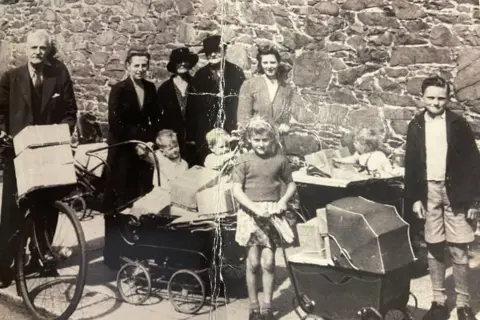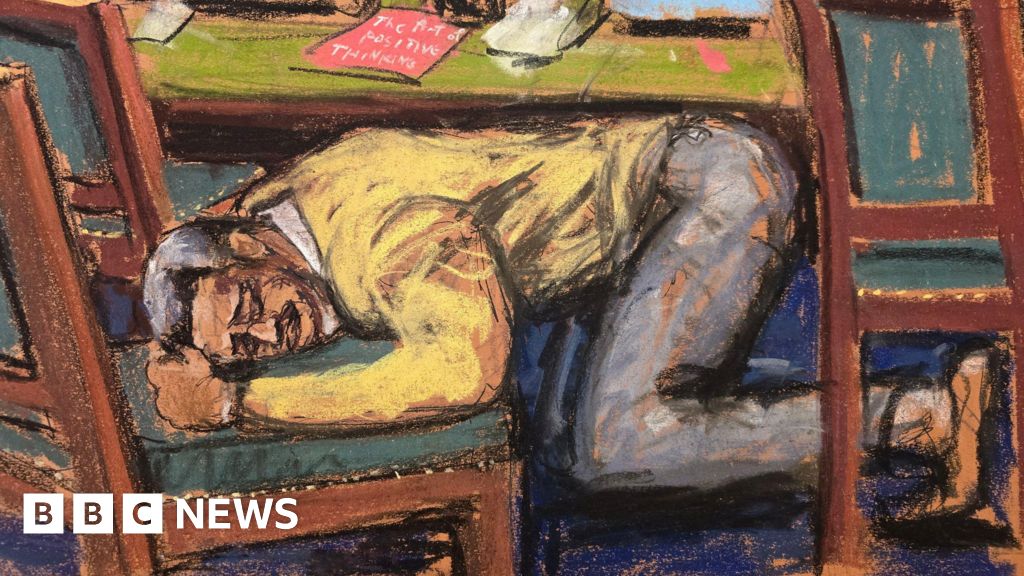'Parsnip coffee and no heating - how I survived the German occupation'
He recalls soldiers smashing the window of the masonic temple on Oxford Road, in St Helier, during target practice.
Mr Isherwood said the troops had taken over a garage opposite the Temple Bar pub on nearby Stopford Road.
He said: "Outside of the garage they used to put two-pack guns, which were anti-tank guns and fire [them].
"Every six weeks they would close the street and fire at targets which they had fixed in Oxford Road.
"As kids, it was where you would go to see pack guns firing off," he said.
However, despite the youthful hi-jinks, many of his memories from the war were not happy ones.
When the Germans arrived, they rapidly introduced strict regulations.
The islands clocks were set to European time and there was a curfew between 23:00 and 05:00.
Islanders were banned from using vehicles, except those with special permission such as doctors.
Mr Isherwood remembers being "starving hungry" from about 1942 or 1943, as well as freezing cold because of a lack of fuel.
His mother, along with other local women, would stand waiting with buckets and brooms when the coal boat arrived - hoping some lumps would fall off the trucks as they turned the corner onto Victoria Street.
"That's how desperate it was," he said.
He also remembers the winter of 1944 to 1945, when it was so cold his school had to close for seven weeks from January.
The children used to sit in their coats in the classroom and parents were asked to knit hats and gloves for the children, he said.

 David Isherwood
David Isherwood
Despite the hardships, Mr Isherwood survived the occupation.
He was one of the first children to collect a Red Cross parcel from the SS Vega - an event captured in a now-famous photo.
Later he trained as a cabinet maker, meeting his future wife Yvonne during that time, and also spent 28 years working for the island's waterworks.
Mr Isherwood spoke to King Charles III and Queen Camilla about the food shortages during the occupation whey they visited to the island in 2024.
A British military blockade meant it was difficult for the Germans to receive food to the islands, leading to food shortages.
A lot of islanders died from malnutrition, he said.
The shortages led islanders to improvise substitute foods and drinks.
He remembered his mother making parsnip coffee during the war, agreeing with a friend that: "It was awful then and it's awful now."













